EU leaders face pressure to deliver on climate change
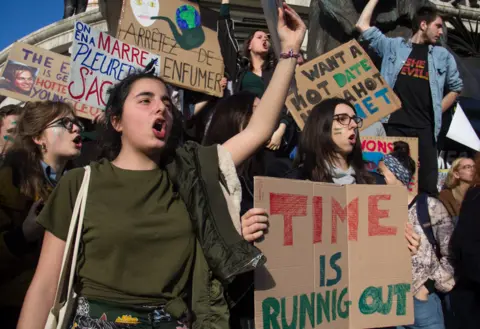 Getty Images
Getty ImagesA few years after saving the euro is it now time for the EU to save the planet?
Tackling climate change is among the key challenges for EU leaders, meeting on Thursday to set the bloc's priorities for the next five years.
A leaked draft of the EU's Strategic Agenda also speaks of the need to control migration to the EU and adapt industrial policy for the digital age.
A greener Europe
The green agenda has become mainstream, after months of student-led #fridaysforfuture protests and the #Extinction Rebellion civil disobedience campaign.
By keeping global warming in the public eye the protests helped Green parties in last month's European elections. They won 74 seats in the European Parliament, compared with 52 before.
Their surge, and the boost for liberal parties in the centre, will change the dynamic of EU politics. The cosy centre-left/centre-right majority is now gone.
Eurosceptic and anti-EU nationalist parties also increased their numbers - which could act as a brake on EU ambitions, as they demand a repatriation of powers from Brussels. The greater fragmentation may make it harder to achieve consensus.
Pro-EU politicians are cheered by the fact that voter turnout increased, after decades of decline, to about 51%. So, despite the nationalist rhetoric, they argue that on certain issues, such as climate change and migration, there is an appetite for "more Europe".
But are the EU's plans for 2019-2024 ambitious enough on climate change?
The draft agenda says "we urgently need to step up our action" on the "existential threat" of climate change. "The EU can and must lead the way," it says.
It acknowledges that de-carbonising the economy and society requires profound lifestyle changes, to achieve "climate neutrality" - that is, a state where any CO2 emissions are balanced out by green measures, such as planting trees.
But Greenpeace complains that the agenda fails to set specific targets for cutting CO2 and other greenhouse gas emissions in the food and transport sectors, and makes EU action contingent on all countries adopting similar green measures.
The EU aims to achieve climate neutrality by 2050. The EU Commission, backed by eight member states including France, the Netherlands and Spain, are pressing for a quarter of the EU budget to be spent on measures to combat climate change.
The budget haggling will intensify in the coming months - exacerbated by Brexit, as the UK's net contribution of about £9bn (€10bn; $11.4bn) annually is set to disappear.
The EU has binding targets for addressing climate change by 2030: to cut greenhouse gas emissions by at least 40% by that date, compared with pre-1990 levels, and boost the share of renewable energy to at least 32%.
Camino Mortera-Martinez, an analyst at the Centre for European Reform, told the BBC "it's now clear the Greens will have a very important role in policymaking" - partly because liberal and socialist parties know they lost voters to the Greens.
"It's an easy policy area to make political gains, as it's a popular issue," she said.
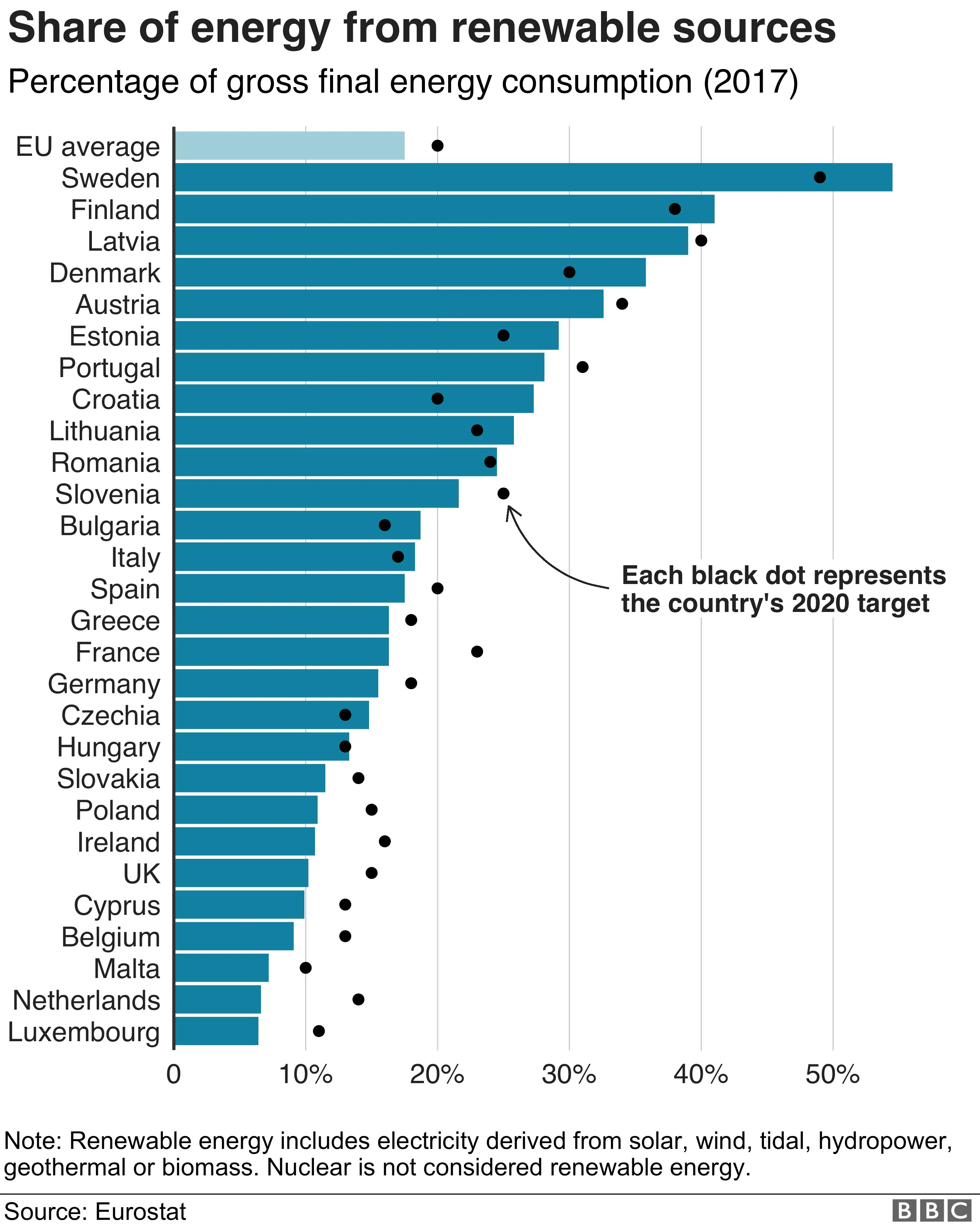

New leadership choices
The 28 government leaders meeting in Brussels will also seek agreement on candidates for the EU's top jobs - the most important being the new presidents of the European Commission, European Council and European Central Bank (ECB).
The centre-right European People's Party is no longer the dominant bloc, so its candidate for Commission president - German conservative Manfred Weber - faces strong competition for the job of Jean-Claude Juncker.
The European Parliament's "Spitzenkandidat" (lead candidate) process put Mr Juncker of the EPP in the post in 2014. But the European Council is not bound by that process when it makes its choice.
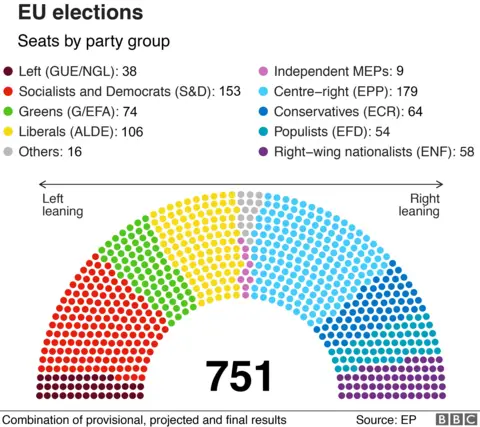
Asylum challenge
Tomas Valasek, director of the Carnegie Europe think-tank, told the BBC that "the old left-right debate is dying - the new divide is between open and closed societies, pro- and anti-Europe".
The EU's tensions over non-EU migrants highlighted that divide, with the Visegrad Group - Hungary, Poland, the Czech Republic and Slovakia - defying an EU scheme to relocate migrants Europe-wide.
Asylum policy remains a major challenge for the EU, despite the deployment of extra border guards and progress in harmonising procedures for asylum applications.
Italy's nationalist Interior Minister Matteo Salvini has found tough anti-immigration action to be a vote-winner.
Italy and Greece accuse their EU partners of lacking solidarity, while their migrant camps and asylum authorities remain overburdened.
The surge of refugees from Syria, Iraq and Afghanistan via the Balkans has declined since 2015. But the flow of Mediterranean migrants - mostly Africans fleeing poverty and war - remains a huge challenge.
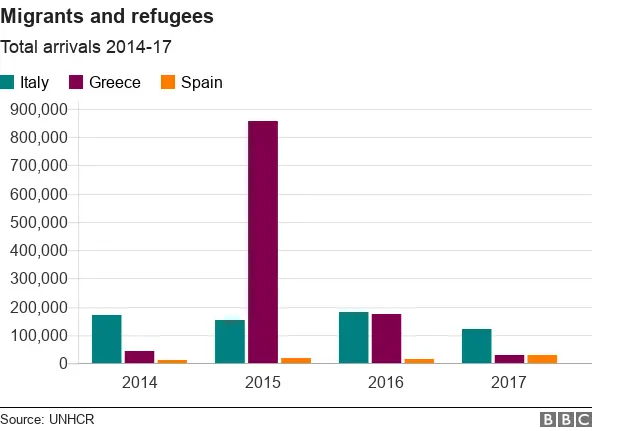
The EU is trying to reform the controversial Dublin Regulation, which requires a migrant's asylum application to be handled by the country where he/she first arrives in the EU.
But Ms Mortera-Martinez says the Dublin dispute "won't be resolved soon". Moreover, she says, the EU "needs to think where the next crisis will come from", as the current controls were hastily improvised to deal with the Syria crisis.
Africa's demographic boom poses a long-term challenge for the EU, many of whose nations have ageing populations.
Poland, like other EU countries, tackles some labour shortages with migrants - and some 750,000 Ukrainians have settled in Poland, Mr Valasek points out. The Visegrad group's argument is that nations must retain sovereign control over immigration.
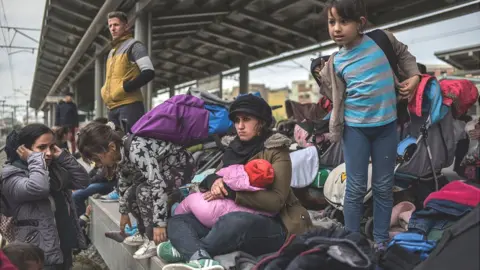 AFP
AFPThe digital future
The EU's strategy "falls short on plans for the digital economy," Mr Valasek told the BBC.
The draft agenda does speak of "a need for a more ambitious, comprehensive and coordinated industrial policy". It says the need for that is "urgent", "hand in hand with the further development of the Single Market".
But in a document on "unfinished business" the EU Commission admits that "international rules on corporate taxation are particularly out of date when it comes to digital services", and it wants governments to tax digital services "where the profit is made".
The tax would especially target giant US tech firms like Amazon, Apple and Google, which exploit Europe's legal loopholes to reduce their tax bills.
Mr Valasek says the EU must do much more to shift the tax burden to the digital economy, away from ordinary workers. "Currently we are making it more expensive to employ people, adding incentives to let people go," he said.
But tax is fraught with difficulties for the EU, as member states compete to woo successful foreign firms - thereby creating jobs - and lower taxes are part of that equation.
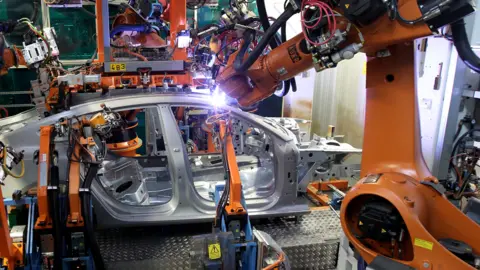 Getty Images
Getty ImagesGlobalisation has multiplied the EU's challenges and fuelled calls - not just from populist politicians - for Brussels to stick to the big issues.
